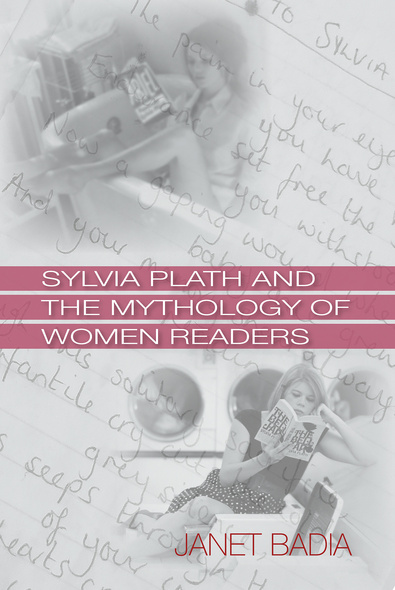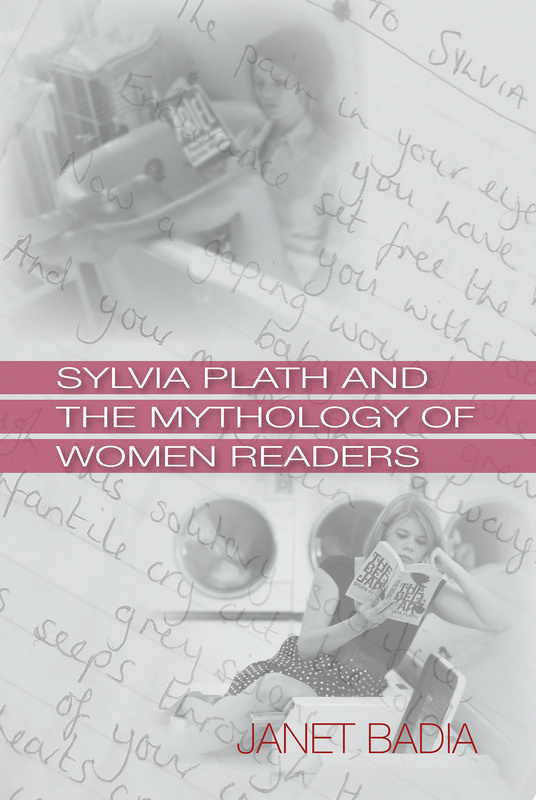Depicted in popular films, television series, novels, poems, and countless media reports, Sylvia Plath's women readers have become nearly as legendary as Plath herself, in large part because the depictions are seldom kind. If one is to believe the narrative told by literary and popular culture, Plath's primary audience is a body of young, misguided women who uncritically—even pathologically—consume Plath's writing with no awareness of how they harm the author's reputation in the process.
Janet Badia investigates the evolution of this narrative, tracing its origins, exposing the gaps and elisions that have defined it, and identifying it as a bullying mythology whose roots lie in a long history of ungenerous, if not outright misogynistic, rhetoric about women readers that has gathered new energy from the backlash against contemporary feminism.
More than just an exposé of our cultural biases against women readers, Badia's research also reveals how this mythology has shaped the production, reception, and evaluation of Plath's body of writing, affecting everything from the Hughes family's management of Plath's writings to the direction of Plath scholarship today. Badia discusses a wide range of texts and issues whose significance has gone largely unnoticed, including the many book reviews that have been written about Plath's publications; films and television shows that depict young Plath readers; editorials and fan tributes written about Plath; and Ted and (daughter) Frieda Hughes's writings about Plath's estate and audience.
Janet Badia investigates the evolution of this narrative, tracing its origins, exposing the gaps and elisions that have defined it, and identifying it as a bullying mythology whose roots lie in a long history of ungenerous, if not outright misogynistic, rhetoric about women readers that has gathered new energy from the backlash against contemporary feminism.
More than just an exposé of our cultural biases against women readers, Badia's research also reveals how this mythology has shaped the production, reception, and evaluation of Plath's body of writing, affecting everything from the Hughes family's management of Plath's writings to the direction of Plath scholarship today. Badia discusses a wide range of texts and issues whose significance has gone largely unnoticed, including the many book reviews that have been written about Plath's publications; films and television shows that depict young Plath readers; editorials and fan tributes written about Plath; and Ted and (daughter) Frieda Hughes's writings about Plath's estate and audience.
Badia's focus on how anxieties about feminism have shaped views of the Plath reader and the Plath reception more generally is sorely needed.'—Susan Rosenbaum, author of Professing Sincerity: Modern Lyric Poetry, Commercial Culture, and the Crisis in Reading
'While Plath scholars have been aware for many years of the nasty portrayal of her critics and readers as somehow deluded and/or demented, Badia has pulled together an exhaustive study of how this came to be.'—Lynda Bundtzen, author of The Other Ariel
'I found myself captivated, riveted, convinced and unable to let the book sit closed for too long. The book is so good and so finely written I was happy to lose sleep over it.'—Peter K. Steinberg, Sylvia Path Info Blog
'The author displays her expertise in feminist history as well as Plath studies as she details common tropes associated with young female readers, including images of an uncritical consumer and reading-induced sickness. Badia's prose is clear and engaging; her argument is sophisticated and complex. Highly recommended.'—Choice
'[Critic / reader tension is] inherent to a patriarchal literary cannon, and its best chance of being dispelled is when historically minded, critically thinking feminists write books like this one calling it out.'—Bitch
'Badia marshals interesting and original research, and engages the examples Plath scholars will be expecting to see. Her reconstructions of some of the more infamous controversies and claims about Plath's readers are painstaking, and her careful unraveling does lead to the discovery that quite minor moments have taken on mythic significance through the amplification of a common rhetoric.'—Plath Profiles
'Sometimes the rhetoric of the extreme used to draw attention to a movement will become the hook the media use to limit our understanding of the movement. More important overall, Badia leaves us with a sense that both male and female scholars and critics invested in patriarchal culture continue to perform a close reading of women readers in ways that mirror nineteenth-century critical assumptions and worry about those women readers, which should worry all of us. It appears that high art does have low readers, and as a result, low readers have high (anxiety) readers.'—Reception: Texts, Readers, Audiences, History
'Sylvia Plath and the Mythology of Women Readers exposes our cultural bias against women readers and reveals how the mythology has shaped the production and critical analysis of Plath's works, offering insights on book reviews, film and TV shows alike.'—Midwest Review
'Badia's book is the best example of the fact that privileging one particular mode of reading always narrows down the polysemy and openness of a text; and as obvious, and at the same time as ironical, as it may sound, 'Plath's readers are not a liability to her.'—Hungarian Journal of English and American Studies
Janet Badia is associate professor and director of women's studies at Indiana University–Purdue University Fort Wayne and coeditor of Reading Women: Literary Figures and Cultural Icons from the Victorian Age to the Present. Become a Fan on Facebook: https://www.facebook.com/PlathandWomenReaders





